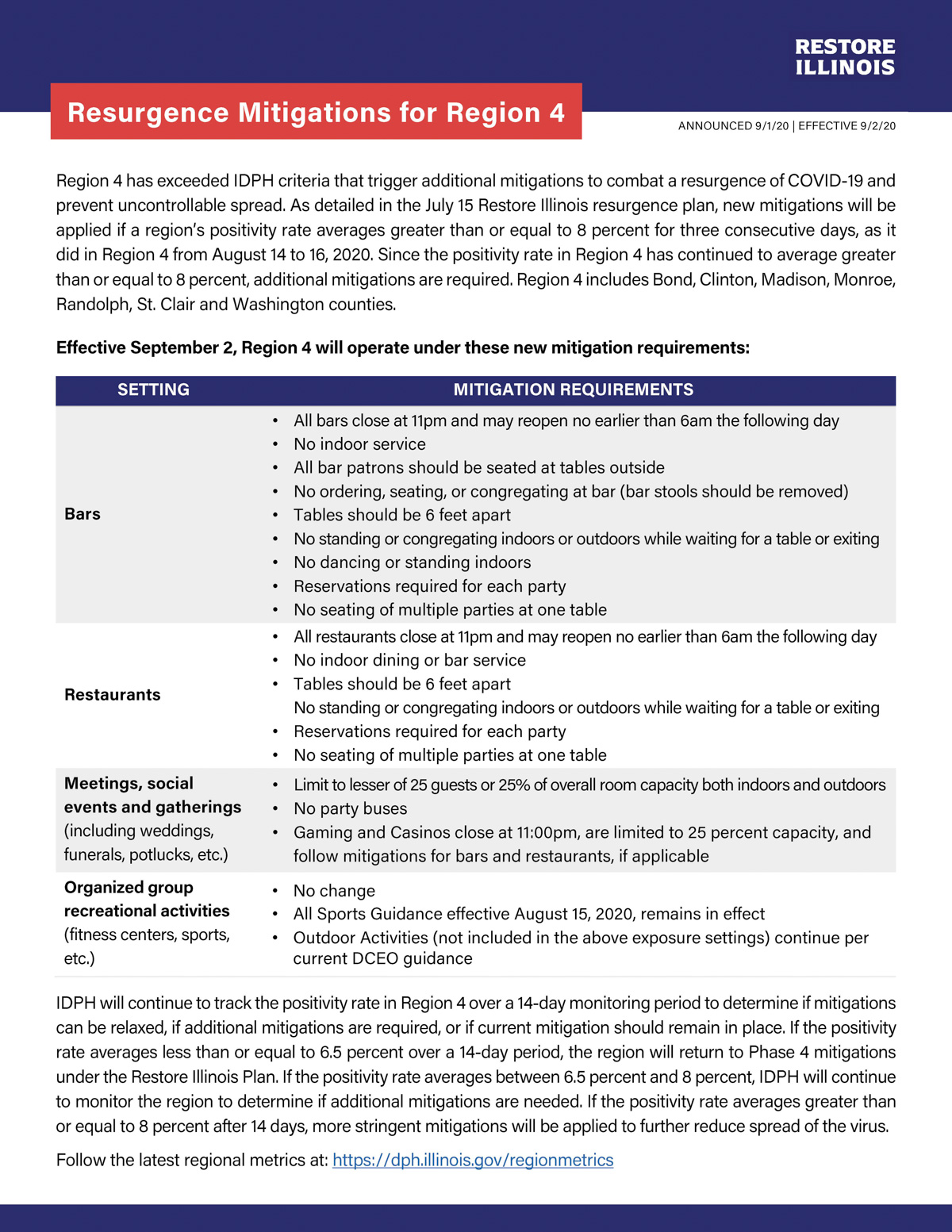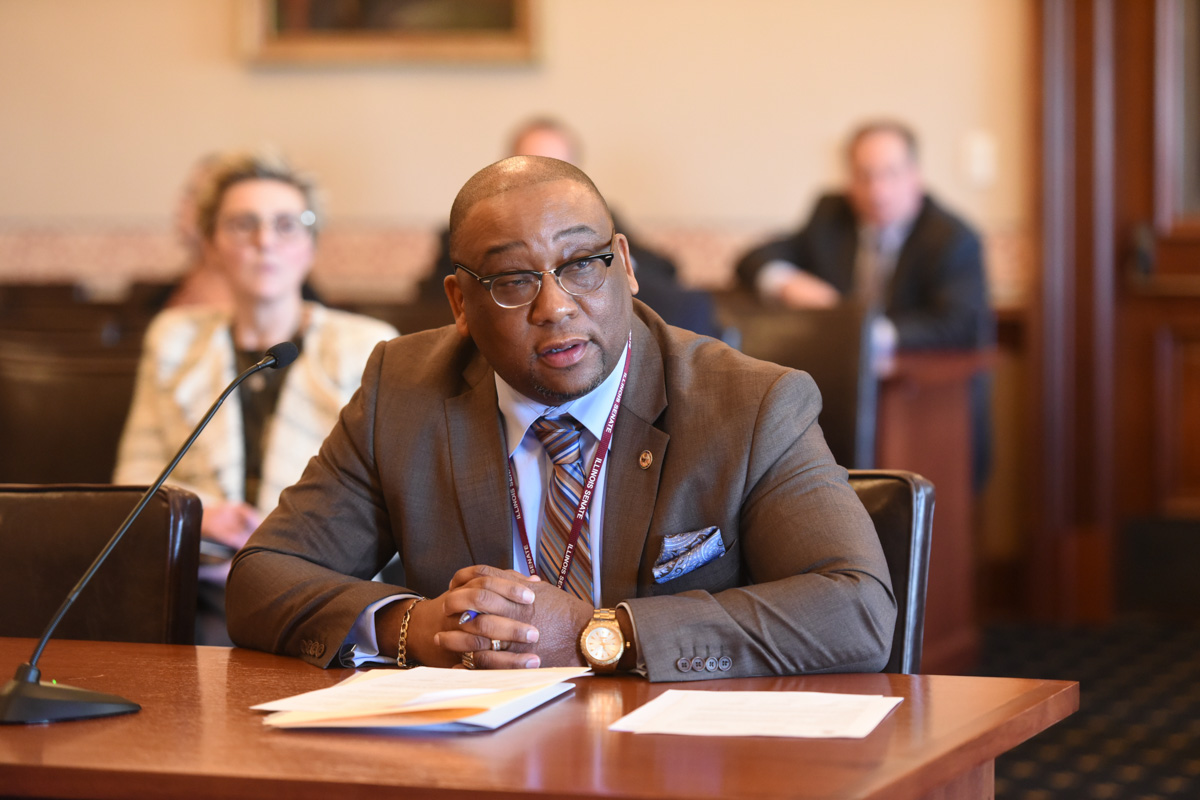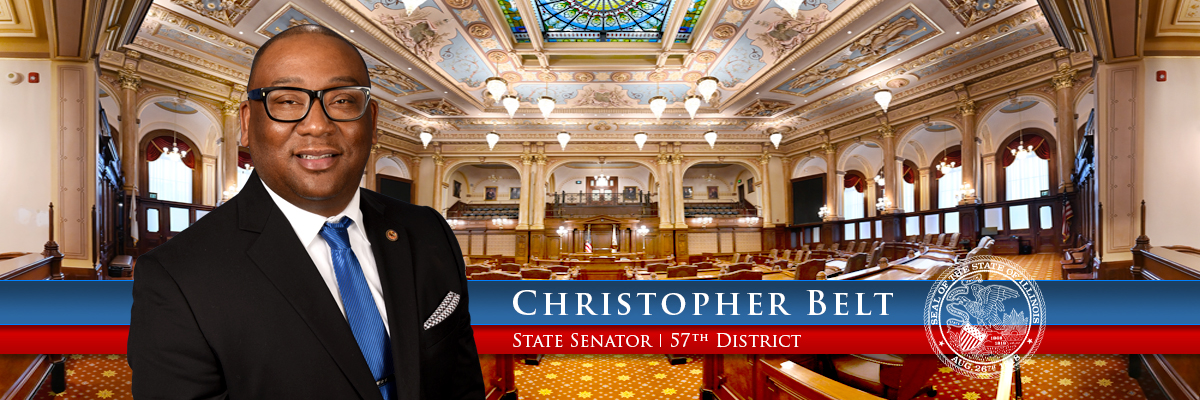- Details
- Category: Press Releases
 EAST ST. LOUIS – With so many residents looking for employment opportunities, State Senator Christopher Belt (D-Centreville) is encouraging people to apply for the Illinois Department of Transportation’s seasonal snow-and-ice removal positions.
EAST ST. LOUIS – With so many residents looking for employment opportunities, State Senator Christopher Belt (D-Centreville) is encouraging people to apply for the Illinois Department of Transportation’s seasonal snow-and-ice removal positions.
“As we prepare for the winter season, IDOT is now accepting applications for snow removal positions. These positions are vital in keeping our roads safe for pedestrians and drivers,” Belt said. “Many workers are struggling to find employment, and this could be their chance to find a job that will last through the winter.”
Read more: Belt encourages people to apply for snow removal positions
- Details
- Category: Press Releases

EDWARDSVILLE, Ill. – In response to new mitigation efforts released by the governor’s office surrounding the COVID-19 pandemic in the Metro East region, State Sens. Christopher Belt, D-Centreville, Rachelle Crowe, D-Glen Carbon, and State Reps. Katie Stuart, D-Edwardsville, Jay Hoffman, D-Swansea, and LaToya Greenwood, D-East St. Louis, issued the following statement Tuesday:
“The safety and wellness of residents of the Metro East and across Illinois will always remain our number-one priority. As we have continued to talk with local residents, families, business owners and employees, the damage caused by the coronavirus is very evident and is not solely on the physical health of those around us. Many small and family-owned businesses across the region have suffered tremendously and have been forced to make very difficult decisions in order to keep their doors open.
Read more: Metro East Legislators Statement on New Mitigation Efforts
- Details
- Category: Press Releases
 EAST ST. LOUIS - To save older adults a trip to a Secretary of State’s office, State Senator Christopher Belt (D-Centreville) is notifying drivers 75 and older with a license that expires in 2020 that its expiration date has been extended for one year.
EAST ST. LOUIS - To save older adults a trip to a Secretary of State’s office, State Senator Christopher Belt (D-Centreville) is notifying drivers 75 and older with a license that expires in 2020 that its expiration date has been extended for one year.
“Giving residents who are 75 years of age or older the option to renew their license a year later will prevent them from worrying about exposure to Covid-19, while visiting a driver’s facility,” Belt said. “Extending the expiration date gives older adults an opportunity for a safer visit in the future.”
- Details
- Category: Press Releases
 CENTREVILLE — To increase awareness of economic development in underserved communities, State Senator Christopher Belt (D-Centreville) announced Madison will receive a grant through the Fast-Track Public Infrastructure Capital program.
CENTREVILLE — To increase awareness of economic development in underserved communities, State Senator Christopher Belt (D-Centreville) announced Madison will receive a grant through the Fast-Track Public Infrastructure Capital program.
“Communities that are disadvantaged needed financial assistance long before the pandemic, which is why this investment is so vital for economic inclusion,” Belt said. “I want to thank Governor Pritzker for continuing to prioritize communities with the greatest needs.”
Read more: Belt announce the city of Madison has been awarded $635,050
More Articles …
Page 87 of 109



